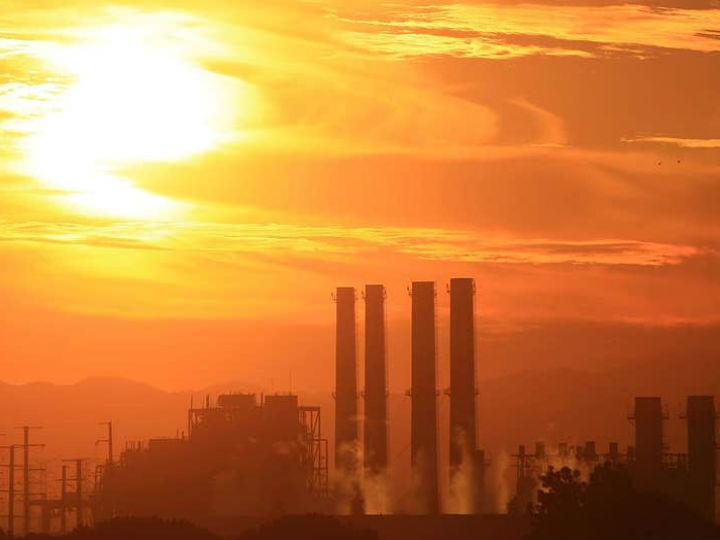The head of the World Meteorological Organisation said global temperatures could rise by 3-5 degrees Celsius above pre-industrial levels this century – more than three times agreed limits – if nothing is done to stop rising emissions.
Greenhouse gas emissions surged to a record level last year, the United Nations said in its “Emissions Gap Report”, released ahead of UN climate talks in Madrid next week aimed at spurring world leaders to limit climate change.
It measures the amount of emissions cuts needed to limit global temperature rises to 1.5C above pre-industrial levels, as agreed in the 2015 Paris Agreement. The UN Intergovernmental Panel on Climate Change last year warned of huge global changes if that target is not met, such as the loss of nearly all coral reefs and most Arctic sea ice.
Under current national pledges to cut emissions, “temperatures can be expected to rise by 3.2C this century, bringing wide-ranging and destructive climate impacts,” said a summary of the report by the UN Environment Programme (UNEP).
“Being a grandfather – we don’t want to leave that for our grandkids,” the report’s lead author John Christensen told a Geneva news conference.
“With 3 degrees we would lose a fairly big fraction of the current (agricultural) yield and areas like Africa where the population is growing would really suffer,” said WMO Secretary-General Petteri Taalas.
The UNEP report said the safest temperature threshold set in Paris – of 1.5C – was still achievable, but would require emissions cuts of 7.6% a year between 2020-2030. Limiting the rise to 2C it would mean annual cuts of 2.7%.
“We are talking about transformational change now – incremental change simply will not make it. We simply need to transform societies in the next 10 years,” Christensen said.
“Stay at the table”
The report showed that emissions, including those from land-use change such as deforestation, had not yet peaked and rose to a record 55.3 gigatonnes of carbon dioxide equivalent in 2018.
Christensen urged countries that had met their targets comfortably, such as Turkey and Russia, to tighten them significantly.
The report named the United States as one of several large emitters, alongside Brazil and Japan, falling short of its own targets, or Nationally Determined Contributions (NDCs). This month, the Trump administration filed paperwork to quit the Paris Agreement in the first step of a formal withdrawal process.
Some officials have downplayed the impact of the US move, saying that companies as well as states and cities have boosted commitments to fight climate change.
Still, UNEP’s executive-director Inger Andersen urged Washington to reconsider. “So, the bottom line here is, stick, stay at the table, negotiate, engage and ensure that we, together, can move forward on climate action.”
Countries face a 2020 deadline to set more ambitious emissions cut pledges. “Had we done it 10 years ago, it would have been easier,” said Andersen.
Last week, a report co-authored by UNEP showed that major fossil fuel producers are set to bust global environmental goals with their coal, oil and gas extraction in the next decade.
Later this week, a majority of European Union lawmakers were hoping to symbolically declare a “climate emergency” during a debate on the Madrid conference, to increase pressure on the incoming EU executive to take a stronger leading role in the fight against climate change.
*first published in: www.euractiv.com




 By: N. Peter Kramer
By: N. Peter Kramer
